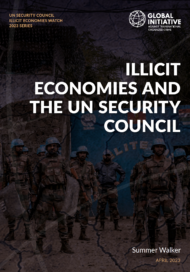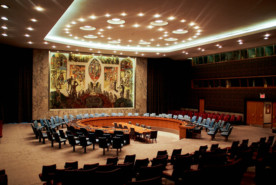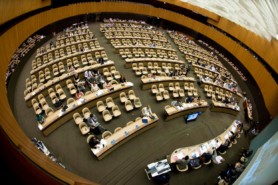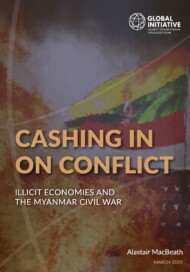Posted on 21 Jul 2023
The Global Initiative Against Transnational Organized Crime (GI-TOC) researches the political economy of organized crime in many countries, including those on the United Nations Security Council’s agenda.
This series, UN Security Council Illicit Economies Watch, draws on research produced by the GI-TOC regional observatories and the Global Organized Crime Index to provide insights into the impacts of illicit economies for Council-relevant countries through periodic country reports and thematic reports.
In 2023, a Security Council Presidential Statement called for “enhanced political and conflict-related analysis” to contribute to the Secretary-General’s efforts to “consider these factors in United Nations analysis and conflict responses. Also, as the United Nations develops and implements its New Agenda for Peace, there is a need to consider the impacts of illicit economies in the search for sustainable peace and preventing conflict. In his report Our Common Agenda, UN Secretary-General said that to protect peace, ‘we need a peace continuum based on a better understanding of the underlying drivers and systems of influence that are sustaining conflict, a renewed effort to agree on more effective collective security responses and a meaningful set of steps to manage emerging risks’. One of these key underlying drivers is illicit economies and a more effective response will need to account for this.
The UN Security Council Illicit Economies Watch series provides insights into the impacts of illicit economies for Council-relevant countries through country reports and thematic reports. A key underlying driver upsetting a peace continuum is the illicit economy – and a more effective response is needed.
Read the briefs part of the series:
- Illicit economies and the UN Security Council (April 2023)
- Illicit economies and peace and security in Libya (July 2023)
- Illicit economies in Afghanistan under the Taliban (March 2024)
- Illicit economies and the Myanmar civil war (March 2025)



